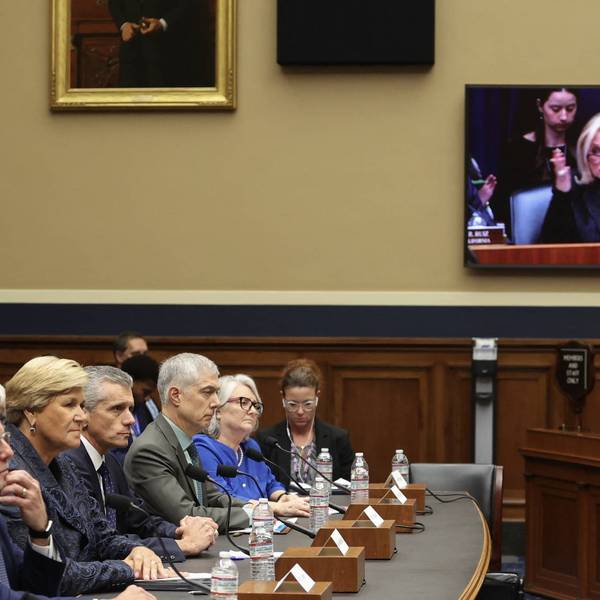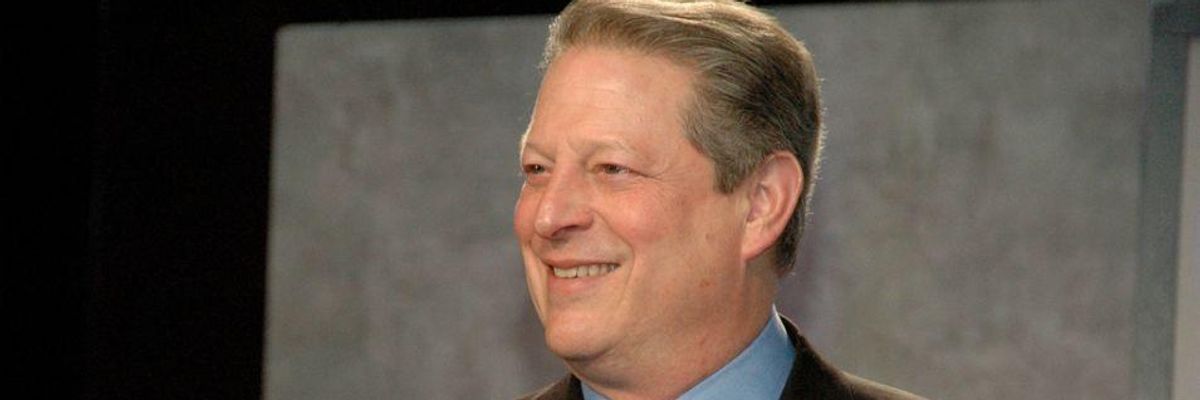On the heels of what appeared to be Trumpcare's final collapse on Monday and in the midst of growing grassroots demands for Democratic lawmakers to embrace a "bold" agenda, former Vice President Al Gore said at an event on Tuesday that he believes the United States should move toward a single-payer system that guarantees healthcare for every American.
"I believe we ought to have single-payer healthcare."
--Al Gore"The private sector has not shown any ability to provide good, affordable healthcare for all," Gore said at Borough of Manhattan Community College, where he was promoting his new climate change documentary. "I believe we ought to have single-payer healthcare."
As the Huffington Post's Alexander Kaufman notes, Gore has in the past unenthusiastically expressed support for single-payer.
"I think we've reached a point where the entire healthcare system is in impending crisis," Gore said in 2002. "I have reluctantly come to the conclusion that we should begin drafting a single-payer national health insurance plan."
Gore is one of the most prominent Democrats to speak publicly in support of a Medicare-for-All type system as Republicans attempt to move ahead with their long-shot effort to repeal Obamacare without a replacement. Others who have recently endorsed single-payer include Sen. Elizabeth Warren (D-Mass.) and Sen. Kamala Harris (D-Calif.).
In recent months, public support for Medicare for All has surged, leading some commentators to argue that it is the "inevitable" successor to the prevailing for-profit healthcare model.
Progressive groups leading the resistance against Trumpcare have repeatedly emphasized that it is not enough to defend Obamacare. An ambitious alternative, activists have argued, must be the end goal, given the deep flaws within the current healthcare system that make it one of the worst-performing in the industrialized world.
As Sandro Galea, dean of the Boston University School of Public Health, argues in an analysis for the Harvard Business Review, "there is no reason to think that the status quo is immutable."
"It did not, after all, come about organically; it is the product of years of influence strategically wielded by powerful stakeholders in business, medicine, and politics," Galea continues. "These stakeholders were able to advance their agenda in large part because Americans had not come to view healthcare as an essential collective right. This is changing."
As Common Dreams reported on Tuesday, a coalition of more than a dozen progressive groups is seeking to pressure Democratic lawmakers to change along with this surge in public support. Backing Medicare for All, these groups argue, would build a firm and extremely popular foundation for Democrats to run on in 2018.
"Simply put, the Democratic Party is a strong midterm wave and a little inter-party soul-searching away from a chance at finally fulfilling the left's greatest healthcare dream, and unlike the GOP's healthcare dream, it would actually help millions rather than hurt them," concludes Bustle's Chris Tognotti. "While it might not be easy, or entirely without risk, it's at the very least an issue worth fighting for."




